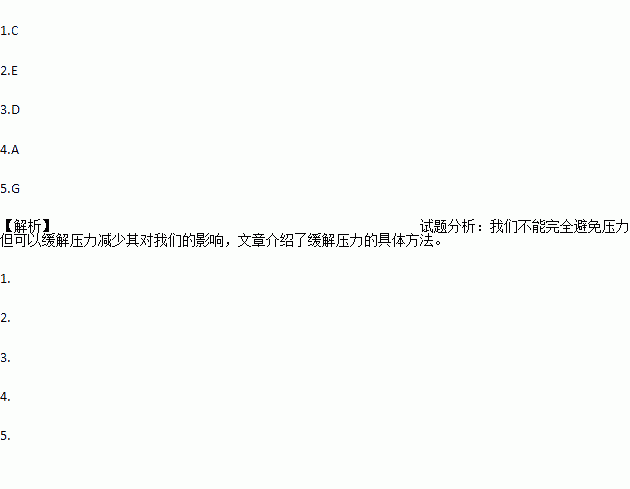题目内容
根据短文内容,从短文后的选项中选出能填入空白处的最佳选项。选项中有两项为多余选项。While it is impossible to live completely free of stress, it is possible to prevent stress as well as reduce its effect when it can’t be avoided. 1. .Try physical activity.2. . Running, walking, playing tennis, and working in your garden are just some of the activities you might try.Make time for yourself.Schedule time for both work and entertainment. Don’t forget, play can be just as important to your overall well-being as work. 3. Go window-shopping or work on a hobby. Allow yourself at least a half hour each day to do something you enjoy.Take care of yourself.4. If you easily get angry and can’t sleep well enough, or if you are not eating properly, it will be more likely that you will fall into stressful situations. If stress repeatedly keeps you from sleeping, you should consult a doctor.5. .Stress can result from disorganization and a feeling that “there’s so much to do, and not enough time”. Trying to take care of everything at once can be too much for you and as a result, you may not achieve anything. Instead, make a list of everything you have to do, then do one thing at a time, checking off each task as it is completed. Set out to do the most important task first.
A. You should make every effort to eat well and get enough rest. |
B. Do whatever you like and want to do. |
C. The following are suggestions for ways to deal with stress. |
D. You need a break from your daily routine to just relax and have fun. |
E. When you are nervous, angry or upset, try releasing the pressure through exercise or physical activity. |
F. You could smile to yourself in front of a mirror every day. |
G. Make a list of things to do. |

